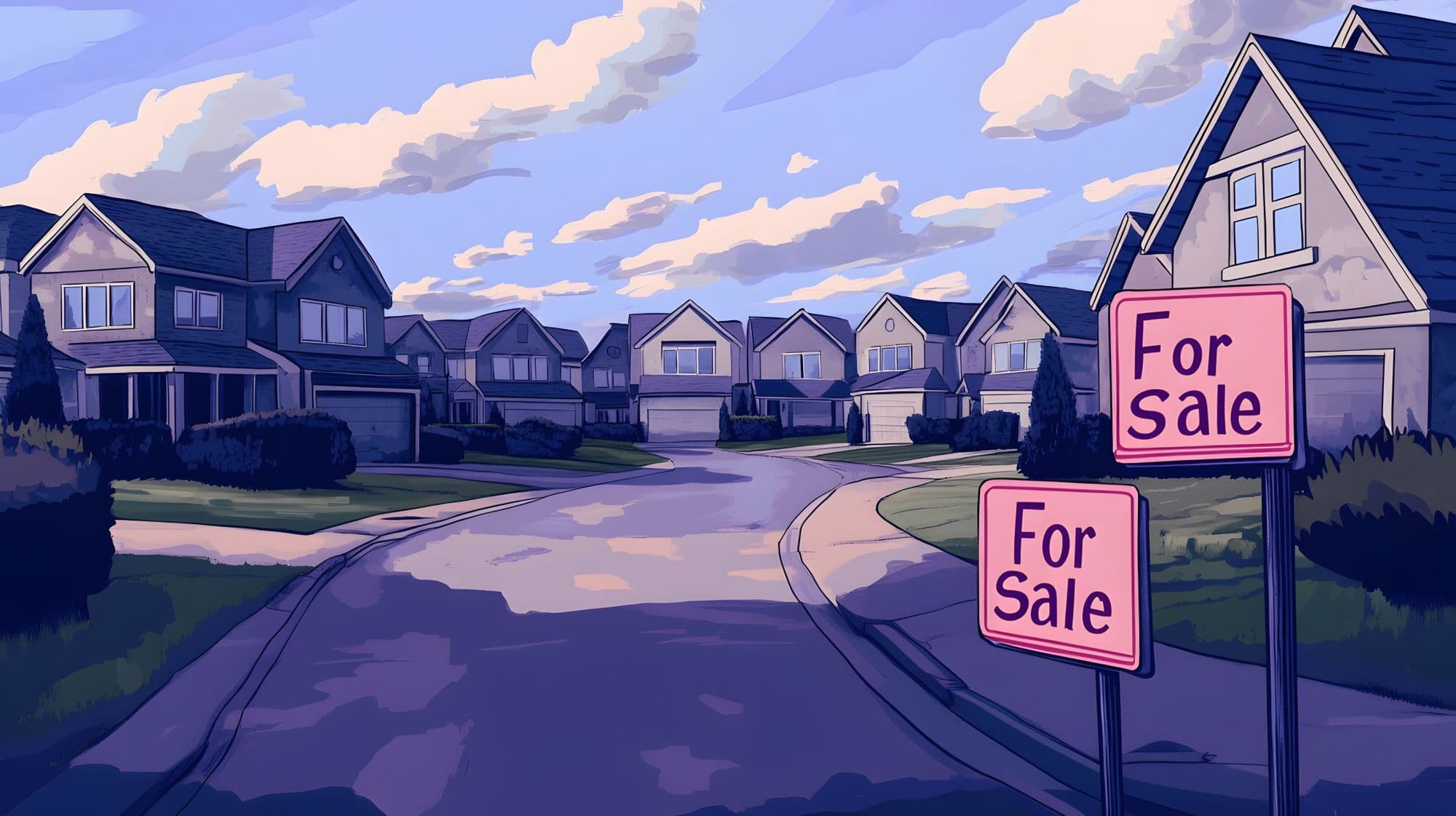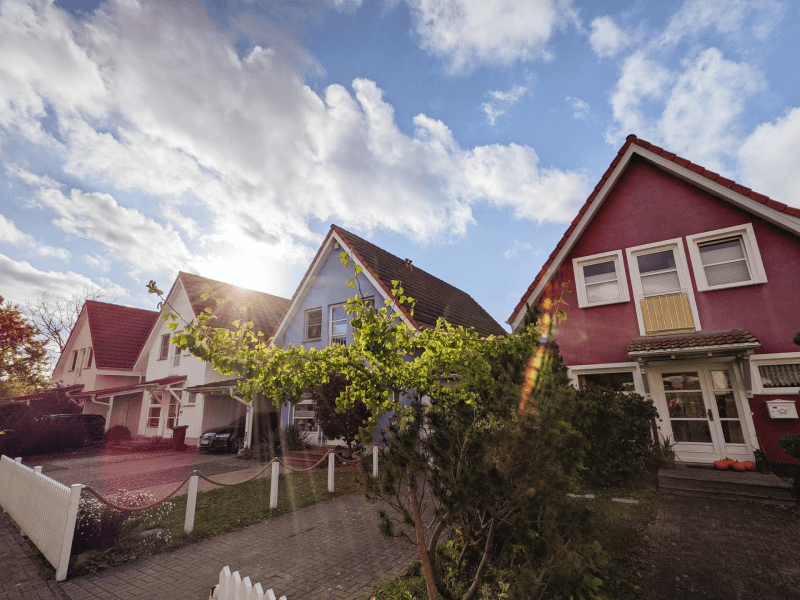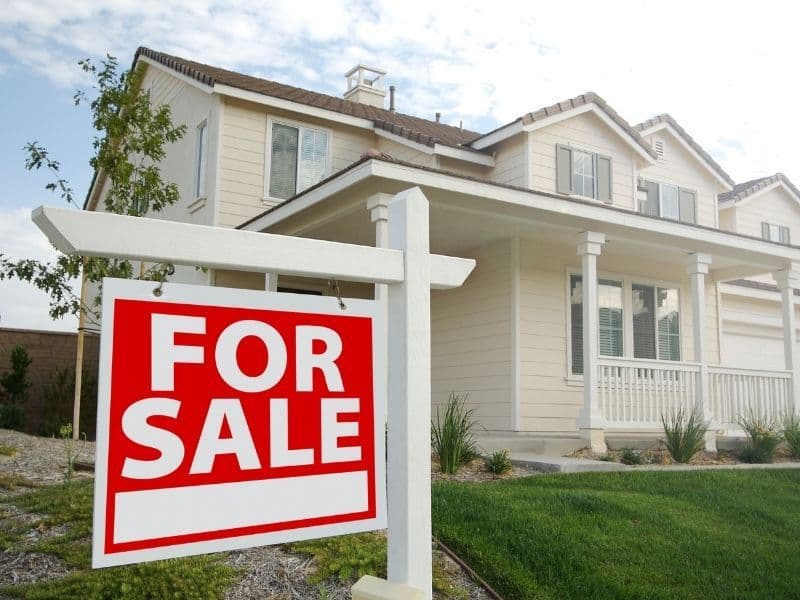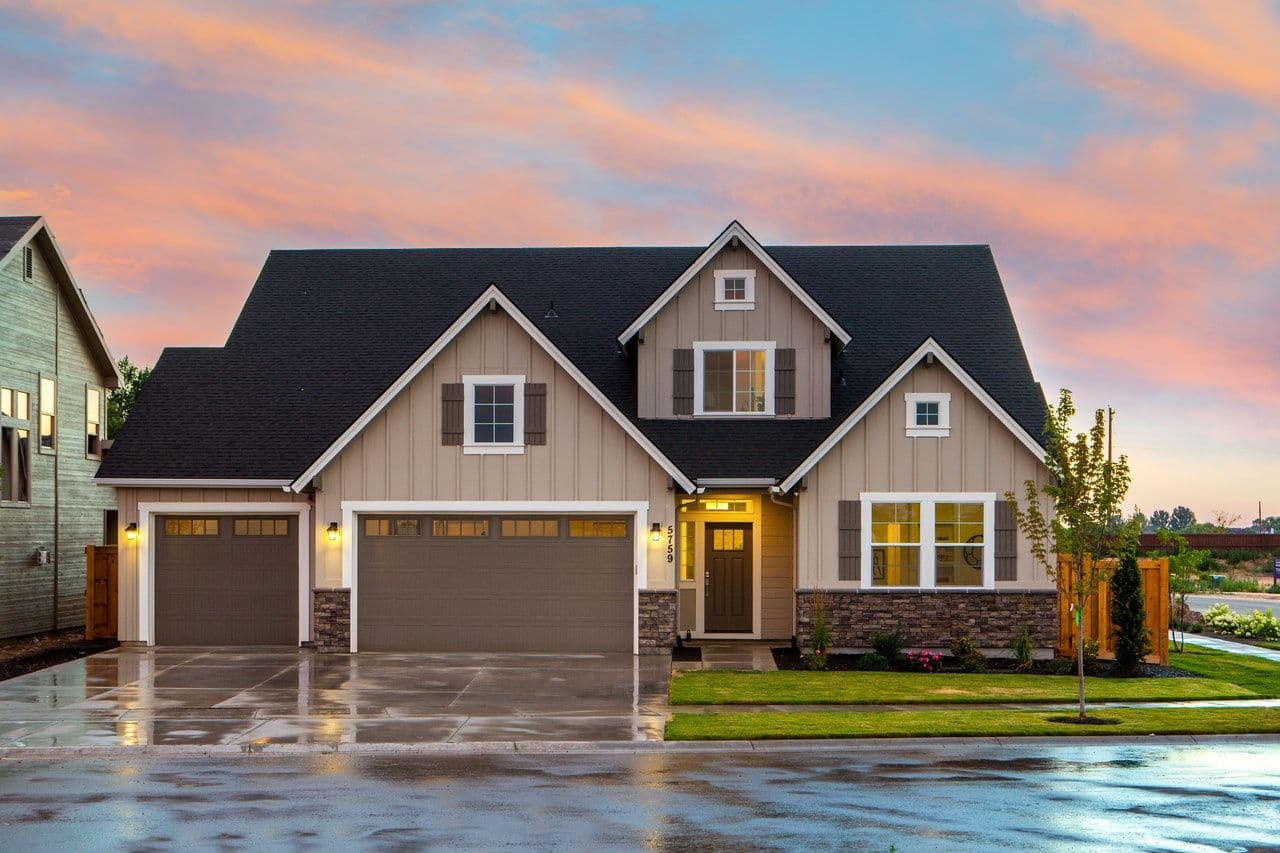
When is the best time to buy a house?
If you're in the market for a house, you'll want to get the timing right.

The two most important factors in buying real estate are location and timing. When you start thinking about buying a new house, it’s good to know the best times to shop. This can help you to either maximize the options you have available or to get the best deal possible.
If your goal when you set out is to find your dream home, then the best time to look is usually in late spring or early summer. However, August is usually the best time to get a deal, according to Zillow. And, if what you really want is to get a deep discount, then November is the best time to shop.
Best time of the year to buy a house
In most areas, the housing market changes throughout the year. Most listings hit the market in late spring and people who are buying typically try to close before fall.
Why?
Often, it’s due to school schedules. People who want to move list their homes in the spring hoping to find a buyer and close just after the end of their children’s school year, while people who are buying want to be settled in their new home before August or September when school is starting.
Plus, it’s just a lot easier to shop for home when the weather is nice out, so people do their house shopping in late spring and early summer. And, days last longer, so people have more daylight to schedule showings.
As a result, late spring is when you usually have the most selection for new listings, while fall and mid-winter are the best times to get a good deal because there aren’t many people shopping. Granted, these are also times when buyers have the fewest options available in terms of homes on the market.
Best times in life to buy a house
Just as there are seasonal factors that contribute to the strength of local housing markets, numerous personal factors are even more important to shoppers who are thinking of buying a home. Because, after all, who cares if you get a great deal on a house if you still can’t afford it? Buying a million-dollar home for $800,000 is still a bad deal if you can’t pay the mortgage.
So, before you start thinking about which season is best for you to find a house, be sure to consider some of the following as signs that you may be financially ready to buy.
5 Signs You’re Ready to Buy a Home:
- You’ve got a steady job - Having steady W-2 employment makes it a lot easier to qualify for a home mortgage. All you’ll need to do is provide a month of paystubs to show your income, as opposed to two or three years of tax returns if you’re self-employed.
- You’ve paid off other debts - You don’t necessarily have to pay off student loans to qualify for a mortgage, but reducing these debts and paying off other debts like credit cards show home lenders that you are responsible with credit—it will also be easier to afford your mortgage payment.
- You’ve saved up enough for a downpayment - Depending on what kind of home loan you’re looking at, the amount you need to have saved for a downpayment varies. Take a look at all of your home loan options with our calculators. At least 20% of your intended purchase price is preferable, as that will allow you to avoid buying mortgage insurance, which adds considerably to your monthly carrying cost.
- You have enough income - When shopping for a house, people usually just check their estimated mortgage payment (principal + interest), but it’s also important to include estimates for insurance, taxes, utilities, maintenance costs, and association dues (if applicable). Find out how much house you can afford here.
- You’re living where you plan to be for the next five years or more - If you plan to move in the next five to ten years, then buying a home may not be a great move. Even if the property goes up in value during that time, you’ll still face considerable costs for getting financing upfront, maintaining the home while you own it, and then selling when you move.
Bad times to buy a house
If you aren’t sure whether now is a good time for you to buy, consider some of these as red flags that you may want to wait:
- You aren’t sure where you’ll be living in 5-10 years
- Your income is inconsistent or unreliable
- You have other debts that eat up 20% or more of your monthly income
- You don’t have enough savings to put what you need into a down payment
- Your mortgage payment, taxes, and insurance would eat up 60% or more of your monthly take-home pay
If any of these are true, you may want to hold off on buying a home—unless you aren’t buying a home to live in. If you’re buying a home to use as a rental property (or buying a home that you may later turn into a rental), that may be a different story.
But, buying a rental property requires some special considerations and may have separate requirements. If this is your game plan, be sure to check out this article from our friends at Think Save Retire on buying an investment property.
What home-buying usually looks like, season by season
It’s worth noting that, while this seasonality is true for most markets, it’s not the same everywhere. In retirement havens (like on Golden Girls), there aren’t so many families buying and selling around school schedules, so peak buying times may be different. This also goes for very wealthy areas or vacation markets, like Aspen or Jackson Hole, that are mostly their residents’ second—or seventh—homes.
And, there’s always highly populated areas like New York or LA, where the real estate markets, like the cities, never sleep—there really isn’t much of a slow season at all.
But, for the rest of the country, here’s what home-buying usually looks like, season by season:
Buying a home in the fall:
If you want to get a deal on your next house, fall is the best time to buy. While there are usually fewer homes on the market than there are in late spring or early summer, there’s still more on the market than there is in late fall or winter.
But, the real reason you can get a good deal in the fall is because there’s more going on—school has started, football season is in full swing, and people are getting their homes ready for winter—so there simply aren’t as many people shopping for homes.
As a result, sellers are usually more apt to negotiate with buyers who bring them offers. Most of these sellers will have listed their homes in the spring, so by fall they’re realizing that they weren’t able to sell when the buying season was in full swing. And, if they don’t find a buyer soon, they may have to hold their home through the winter.
So, while there are usually fewer options for buyers to choose from, the chances of getting a deal (and of avoiding competition from other buyers) are much better.
House hunting in winter:
If you’re looking for a deal on your next house and aren’t able to lock one down during the fall, fear not. Though inventory typically drops as fall turns to winter, the deals only get better. In fact, Zillow reports that the deepest discounts available for homebuyers (as indicated by sales prices relative to listing prices) usually come in November.
The reasons for this are pretty simple: nobody’s shopping, so sellers have to take what they can get.
People don’t shop for homes in the winter for many of the same reasons that sellers often take their homes off the market during that time: the weather is crappy and they have better things to do. There are holidays to plan around and nobody wants random buyers tracking in mud and slush.
So, while there are never as many homes on the market in winter as there are in spring or summer, this is a great time to buy if you care less about what you’re buying and more about what you’re paying.
(Incidentally, buying a home when there are less to choose from can also be a recipe for disaster. If you’re under pressure to buy something, you may have to settle for a home with more issues or undesirable features simply to make a purchase—so it may just be better to avoid buying in the winter if possible.)
Shopping for a home in spring:
House shopping in spring is almost the exact opposite of fall. In late spring is when most people start listing their homes, so there’s lots to choose from.
But, with homes just having hit the market and home buying just kicking into high gear, sellers usually aren’t in any mood to offer big savings. They’d rather just wait for a better offer from one of the myriad shoppers that are getting ready to buy.
This is especially true in high-end or seasonal markets, where sellers are less likely to be selling their homes due to financial strain and more likely to keep their residence if they don’t get an attractive offer—or wait for another buyer to come along.
Landing your living space in summer
In most areas of the United States, summer is the time to go shopping for a house. The weather is nice, days are long, yards look good, and kids are out of school—which means homes look nice when they’re shown and buyers have time to see them.
For these same reasons, this is also when most houses are being actively marketed. So, while this is a great time to find your dream house if selection is important to you, it’s not a time when you can expect any big discounts. According to Zillow, homes that usually sell at or over asking prices usually do so in late spring and summer months.
If you want to have plenty of selection when shopping for a home, be sure to look in the summer—just don’t expect that you can strong-arm your way into a deal, because sellers know that this is when buyers are out in force.
What to do before you buy
If you really want to get a good deal or find your dream house, it’s important to do some things before you make an offer. These five steps will increase your odds of finding and landing your ideal property:
- Figure out your budget - While in step 3, a lender or mortgage broker will tell you what amount of home loan you’re approved for, you should never go into that meeting blind. Before even starting to look, get a sense of what you can afford on a monthly basis using a mortgage calculator.
- Find a realtor - Realtors have tools available to help you find good properties in your budget and set up showings. They also usually have a good understanding of the local market. Some even keep “pocket listings”—properties that aren’t officially listed but may be available in your area for the right price.
- Find a lender and get pre-qualified - Getting prequalified for a loan will help you set your budget for purchase price and also make your offer stronger because the seller will know you can get a loan
- Decide what you’re looking for - Before you start looking at properties, make a list of the things that are important to you. Things like property type (house, apartment, condo, etc.), features, location, and pricing are all important considerations.
- Research neighborhoods - When you start looking for homes, you’ll likely find a few homes from different areas that appeal to you, so try to familiarize yourself with different areas (the schools, local taxes, etc.) before you schedule showings.
Buying a home can be a complicated process, but our mission at What’s My Payment is to help make the process easier! Check out our full suite of mortgage calculators to see how your numbers stack up!
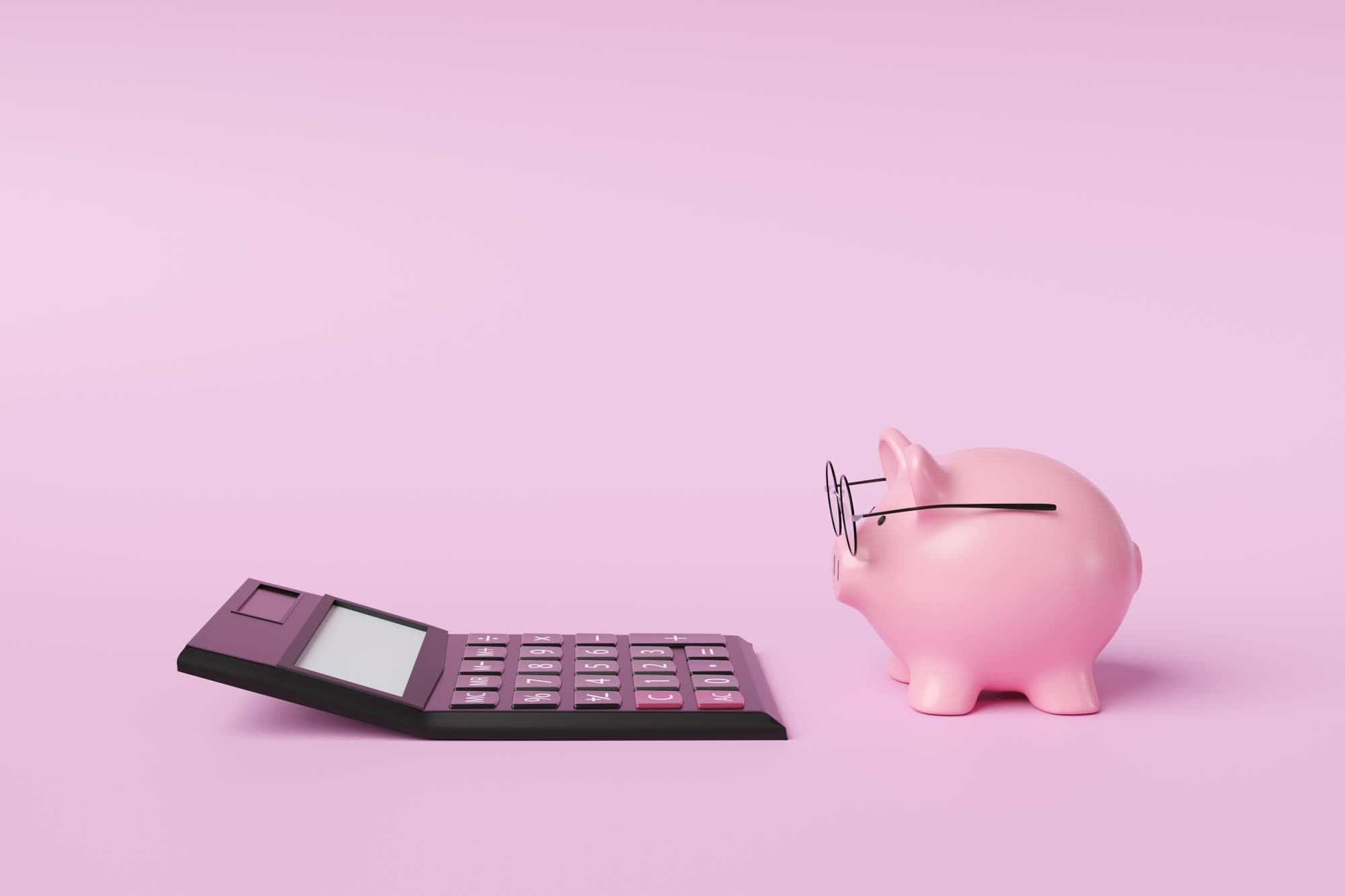


![When Will Mortgage Rates Go Down? [2025 Guide]](/_next/image/?url=https%3A%2F%2Fs3-us-west-2.amazonaws.com%2Fwhatsmypayment.com%2Fcontent%2Fimages%2F2025%2F03%2FWhen-Will-Mortgage-Rates-Go-Down---2025-Guide-.jpeg&w=3840&q=75)

![How Long Does it Take to Close on a House? [2024 Guide]](/_next/image/?url=https%3A%2F%2Fs3-us-west-2.amazonaws.com%2Fwhatsmypayment.com%2Fcontent%2Fimages%2F2024%2F09%2FHow-Long-Does-it-Take-to-Close-on-a-House---2024-Guide-.jpeg&w=3840&q=75)
